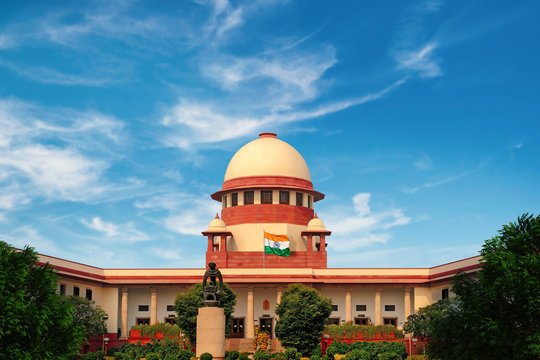Published on :
New Delhi:
The Supreme Court on Thursday directed workers/ employees involved in labour disputes to provide their permanent addresses in pleadings instead of merely providing the address of labour unions or authorised representatives [Creative Garments Ltd vs Kashiram Verma].
A bench of Justices Abhay S Oka and Rajesh Bindal ruled that the address of labour unions or authorised representatives would not suffice even for service of notice.
The Court after discussing various labour laws and social security codes, stated,
“Effective relief can be granted to a worker only if the permanent address of the workman is furnished in the pleadings … In future all the cases to be filed and in all the pending cases, the parties shall be required to furnish their permanent address(es).”
The judgment came in an appeal against a 2010 division bench order of the Bombay High Court.
The division bench had upheld verdicts of a single-judge and of a labour court directing reinstatement of the respondent with full back-wages with effect from December 1997.
The top court at the outset noted that the respondent had not furnished his address even at the labour court level.
It was also noted that after the High Court order, the appellant had had sent various communications by registered post to the respondent to convey the order to reinstate him but to no avail.
Further, the workman had not reported back for duty till date, even after an assurance from his counsel to the High Court in 2007.
The top court noted that the same suggested that he must have been gainfully employed after leaving the job in question.
Therefore, the appeal was allowed and the labour court’s award set aside.
“The present appeal cannot be kept pending as the conduct of the respondent itself establishes that he is no more interested in employment what to talk of back-wages,” the bench stated.
However, the bench saw it fit to issue corrective directives. This was in view of the fact that all efforts at serving the respondent, who had given the address of the labour union instead of his address, had proved futile.
The directions were also issued in anticipation of the fact that the executive would soon enforce the four pending labour codes, which have consolidated several labour welfare legislations, namely:
1. Code on Wages, 2019;
2. Occupational Safety, Health and Working Conditions Code, 2020;
3. Industrial Relation Code, 2020;
4. Code on Social Security, 2020
“With the enforcement of 4 Labour Codes, we are hopeful that in future, when rules are framed, authorities will take care that parties to the dispute furnish their permanent addresses in the cases relating to labour law disputes,” the Court observed.
Advocates Sonal Gupta and Abhishek, briefed by Parekh & Co, appeared for the appellant.



